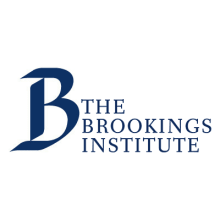While there are many different pathways to scaling and sustaining the impact of a development initiative, the reality is that in the education sector, delivering at scale over the long term is very often not possible without government in the lead. When an NGO, social enterprise, or donor develops and implements the initiative first, the scaling strategy must center around the gradual transition to government ownership, delivery, and financing—assuring quality and impact are maintained.
This type of scaling—called institutionalization, vertical scaling, or mainstreaming—is the process by which an initiative becomes embedded within the formal education system and is led and sustained by the government. The ultimate goal is that the initiative becomes part of the government’s policies, plans, procedures, budgets, and daily activities—effectively “disappearing” into the broader system.
Tracking institutionalization in Real-time Scaling Labs
One example of this type of scaling pathway can be seen in the Real-time Scaling Lab in Côte d’Ivoire, where the scaling goal is not only to reach 100 percent of students in grades 3-6 with the Teaching at the Right Level or “PEC” targeted literacy and numeracy approach, but also to institutionalize and sustain PEC delivery fully within the education system, such that it is wholly integrated into the Ministry of National Education’s own processes and plans. The Ministry currently implements PEC directly in 1,000 public schools and is in the process of infusing all aspects of delivery throughout the education system, including incorporating data collection and mentoring activities into existing processes and planning to incorporate PEC training into teacher training colleges’ curricula.
Another example can be seen in the Real-time Scaling Lab in Jordan, where the Ministry of Education, in collaboration with the Central Bank of Jordan, has been gradually mainstreaming a financial education course developed by the social enterprise INJAZ in all public, private, and refugee secondary schools over a seven-year period. The end goal is for all program elements to be transferred fully to the government by 2023. Throughout the process of institutionalization, INJAZ has been playing a key role supporting the Ministry in areas such as curriculum revision, teacher training, and monitoring and evaluation of program outcomes.
Through the Real-time Scaling Labs, CUE has witnessed the need for more practical, education-specific guidance on how to track the progress of vertical scaling and prioritize next steps.
Using the tracker
While the end goal for institutionalization may be clear, assessing progress toward achieving it can be less straightforward. Identifying the various elements of the education system to track headway and roadblocks faced in each of these areas can be challenging. Further, it is not always evident what concrete actions need to be taken to advance the institutionalization process and how to prioritize among them. Through the Real-time Scaling Labs, the Center for Universal Education (CUE) has witnessed the need for more practical, education-specific guidance on how to track the progress of vertical scaling and prioritize next steps.
Related Content
To support policymakers, practitioners, and funders engaged in this process, CUE has developed the “Institutionalization Tracker,” a tool to measure the progress of efforts to integrate an initiative into the education system and identify areas that require additional attention to strengthen institutionalization. As noted in the tool directions and demonstrated by the graph below (Figure 1), the tool is organized by education system building blocks, each of which is broken down into specific elements. For each element, there is a set of criteria to consider when assigning a score, and a column for providing an explanation for the score selected. The score is based on a scale of 1–4, with 1 meaning “low institutionalization,” and 4 meaning “full institutionalization.” This tool measures the progress of institutionalization efforts related to one government agency or ministry, specifically the ministry of education. The tool is designed to track progress toward national-level institutionalization, but in a decentralized system it can instead track institutionalization for the appropriate subnational education authorities. Notably, the tool is not meant to determine if an initiative should scale, or to assess the strength of an education system, and it does not track other important aspects of scaling such as impact and quality, and so ideally it should be complemented with other scaling metrics. It is important that stakeholders use the tool as part of a collaborative effort not only once, but as a dynamic planning tool—repeated at intervals to assess progress and determine next steps.
Figure 1. Sample radar graph

Source: CUE “Institutionalization Tracker,” 2021.
Note: This radar graph visually depicts a sample of two rounds of results from the tracker and can help determine priority actions.
The Institutionalization Tracker can be adapted to the specific needs of the intervention and context where it is used and can be extended to include further dimensions not currently explicitly identified, such as the structure and dynamics of costs that need to be covered by the public budget. This tracker is one in a suite of tools developed and tested by CUE, each of which supports different aspects of the scaling process and works in synergy. While the tracker can certainly be used on its own, we recommend that this tool inform the refinement of a broader scaling strategy and be used in conjunction with a resource such as CUE’s “Scaling Strategy Worksheet.”
The Institutionalization Tracker has been piloted in several of the Real-time Scaling Labs to date and has been directly informed by the work and input of our partners. We welcome readers’ questions, feedback, and reflections to inform future editions.


